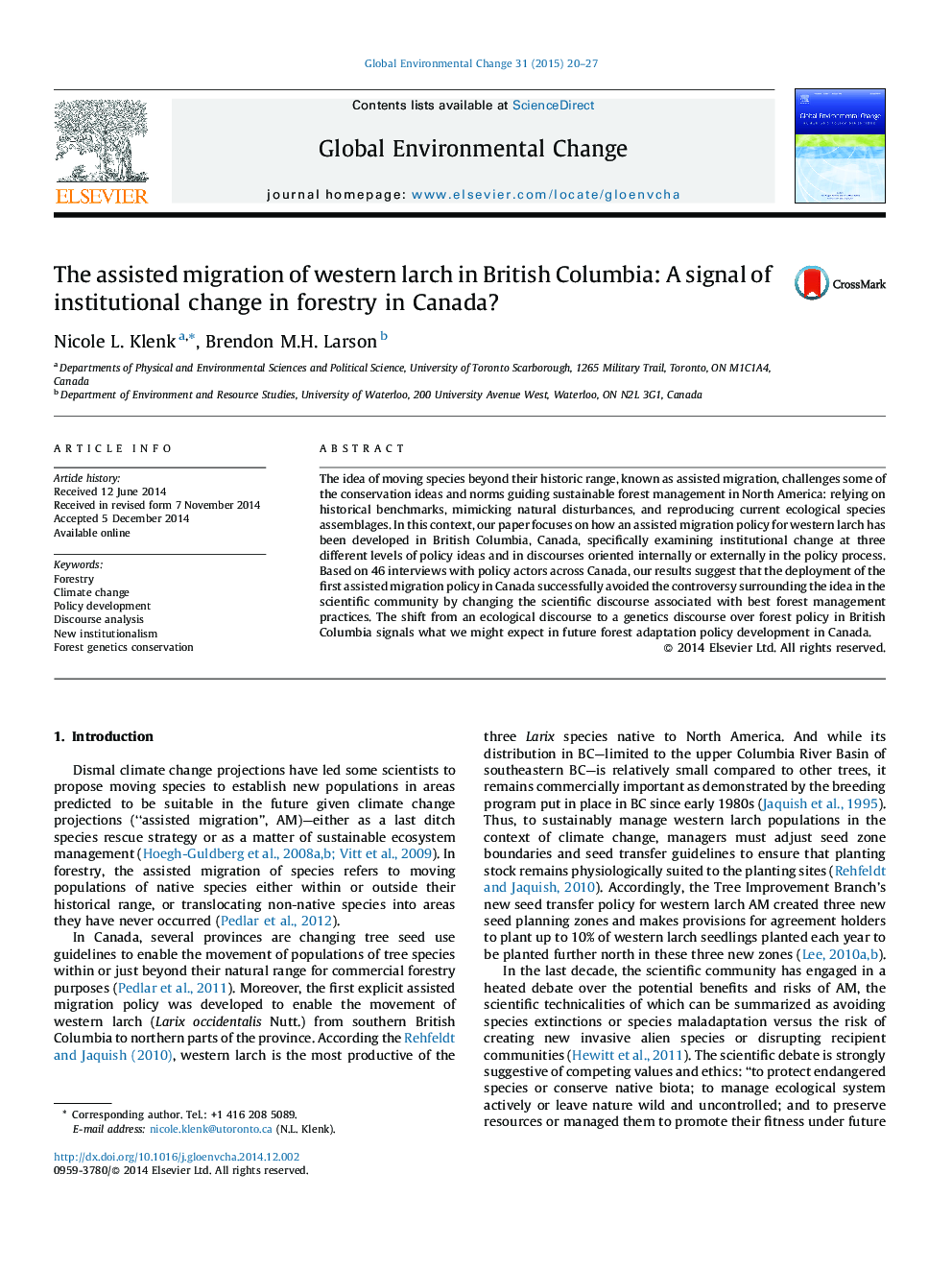| Article ID | Journal | Published Year | Pages | File Type |
|---|---|---|---|---|
| 7470034 | Global Environmental Change | 2015 | 8 Pages |
Abstract
The idea of moving species beyond their historic range, known as assisted migration, challenges some of the conservation ideas and norms guiding sustainable forest management in North America: relying on historical benchmarks, mimicking natural disturbances, and reproducing current ecological species assemblages. In this context, our paper focuses on how an assisted migration policy for western larch has been developed in British Columbia, Canada, specifically examining institutional change at three different levels of policy ideas and in discourses oriented internally or externally in the policy process. Based on 46 interviews with policy actors across Canada, our results suggest that the deployment of the first assisted migration policy in Canada successfully avoided the controversy surrounding the idea in the scientific community by changing the scientific discourse associated with best forest management practices. The shift from an ecological discourse to a genetics discourse over forest policy in British Columbia signals what we might expect in future forest adaptation policy development in Canada.
Related Topics
Life Sciences
Environmental Science
Environmental Science (General)
Authors
Nicole L. Klenk, Brendon M.H. Larson,
